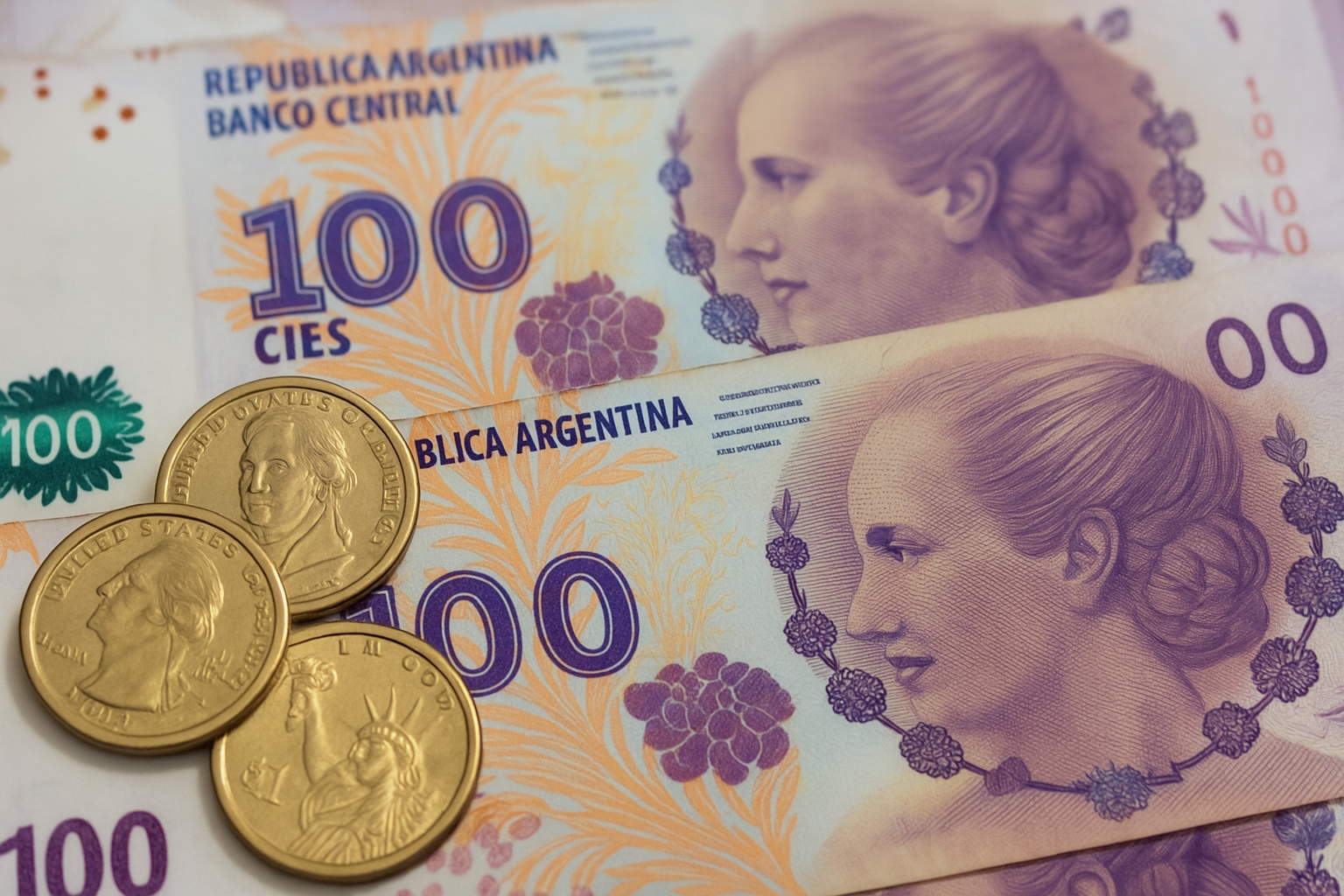U.S. Buys Argentine Pesos After Finance Talks, Swap Deal Sparks Market Relief
By Tredu.com • 10/10/2025
Tredu

U.S. Steps In: Buys Argentine Pesos After Top Finance Meeting
The United States purchased Argentine pesos and cemented a $20 billion currency swap agreement following intense discussions between U.S. Treasury officials and Argentina’s financial leadership. The move, confirmed by Treasury Secretary Scott Bessent, aims to stabilize Argentina’s fragile currency and reassure investors.
Markets responded quickly. The peso strengthened, and Argentine bond prices jumped, reflecting renewed confidence in the intervention.
The Deal Breakdown: What Was Announced & Why
$20 Billion Swap + Direct Peso Purchases
The U.S. didn’t just promise support, it directly purchased pesos in the open market and locked in a $20 billion swap line with Argentina’s central bank. Bessent described the purchase as part of “exceptional measures … to provide stability to markets.”
Political & Strategic Timing
The intervention follows four days of negotiations involving Argentina’s Finance Minister Luis Caputo, U.S. Treasury officials, and IMF representatives. The timing is especially sensitive, Argentina is heading toward midterm legislative elections on October 26, making currency stability a pressing issue.
Market Moves: Peso & Bonds Up
After the announcement, the peso strengthened (around 0.8% in late trading), while Argentine dollar bonds appreciated. Local equities also rallied broadly. The intervention seems to have had an immediate calming effect on volatile EM sentiment.
Why the U.S. Acted & What It Seeks
Stabilizing a Volatile Ally
Argentina has long faced currency instability, high inflation, and capital flight. By stepping in now, the U.S. seeks to prop up the peso, reduce panic, and shore up investor sentiment ahead of elections.
Ideological & Geopolitical Undercurrents
Observers argue the move has a political edge: the intervention supports President Javier Milei, a staunch U.S. ally, and may strengthen his position in upcoming legislative contests. Some U.S. critics call the step a foreign bailout at odds with “America First” rhetoric.
A Tactical Use of Treasury Tools
Treasury leveraged the Exchange Stabilization Fund (ESF) and swap mechanisms to act quickly. Such direct currency market intervention is rare, signaling urgency and determination.
Risks & Trade-Offs Ahead
Overvalued Peso Vulnerability
Skeptics warn that propping up an overvalued peso may backfire. If Argentina’s currency weakens post-election, the U.S. could assume foreign exchange losses.
Political Blowback in Washington
Some U.S. lawmakers have already criticized the move. A "No Argentina Bailout Act" was introduced to limit Treasury use of ESF funds for foreign aid. Domestic opposition sees the swap line as controversial.
Execution & Conditionality
The intervention may lack strong conditions. If Argentina fails to follow through on fiscal discipline, the stabilization may be short-lived, or worse, invite moral hazard.
Market Strategy: What to Keep an Eye On
- FX volatility & spillover in other emerging markets, will this embolden similar interventions?
- Argentina’s fiscal policies & reforms post-election, the sustainability of the peso depends heavily on structural steps.
- U.S. legislative reaction and whether further constraints on ESF use are imposed.
- Bond flows & yield spreads in Argentine debt, how credit markets adjust to perceived risk.
- Swap‐line terms & exit plans whether the U.S. demands conditions or timelines for unwinding the support.
Conclusion
The U.S. buys Argentine pesos and consummates a $20B currency swap following high-level finance discussions. This intervention is designed to calm markets, stabilize the peso, and signal deep commitment to Argentina’s economic trajectory. While risks abound, from FX losses to political backlash, the boldness of this move underscores the strategic importance the U.S. places on maintaining influence in Latin America.
At its core, this is a story of economic diplomacy, market rescue, and political stakes: the United States has intervened to prop up Argentina’s peso, and world markets have taken notice.

How to Trade Like a Pro
Unlock the secrets of professional trading with our comprehensive guide. Discover proven strategies, risk management techniques, and market insights that will help you navigate the financial markets confidently and successfully.


